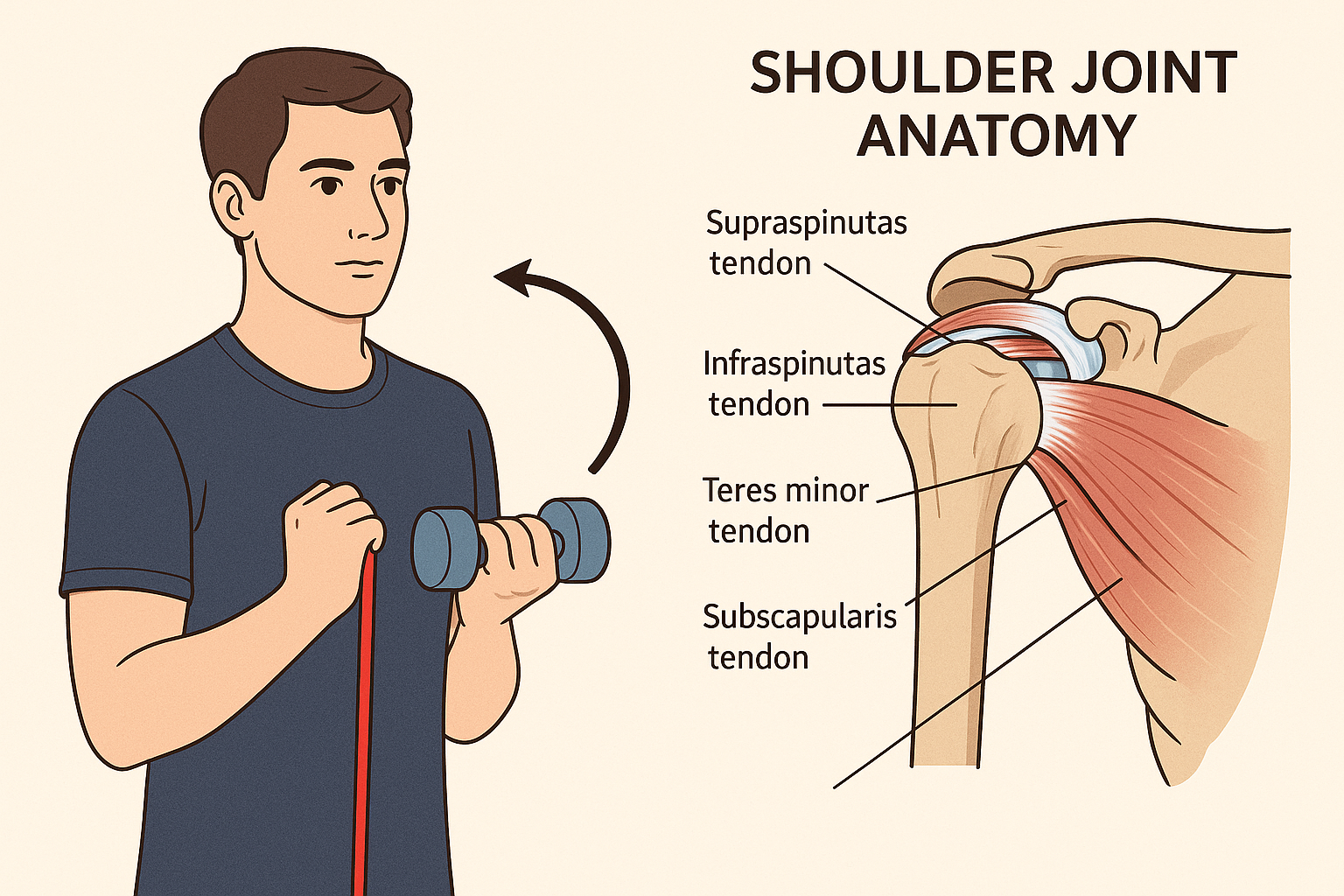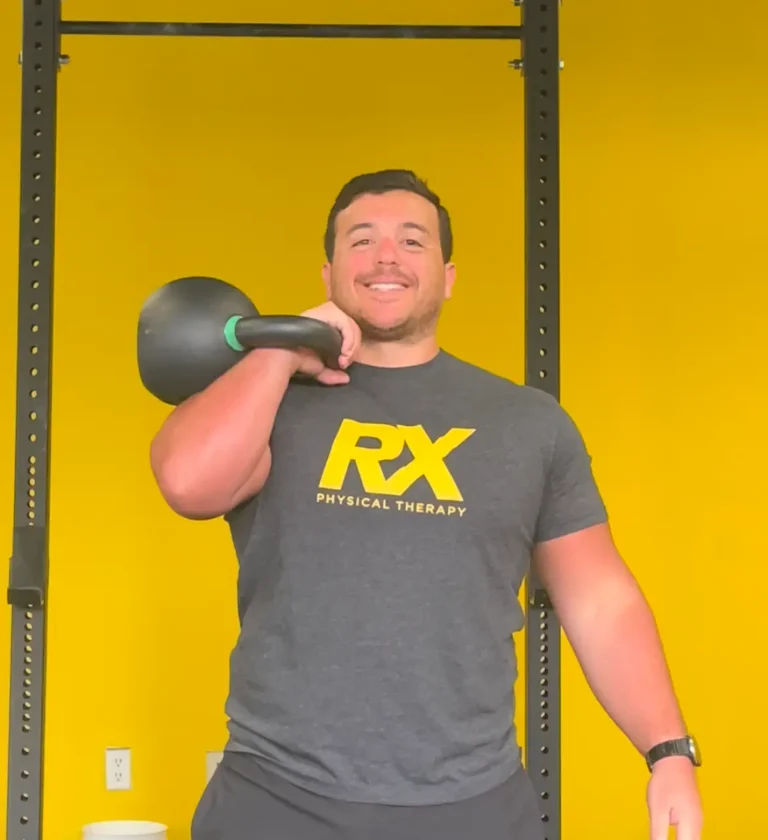Shoulder clicking can be confusing—and sometimes concerning—especially if it shows up during your workouts or daily activities. Is it harmless, or a sign of something more serious?
In this blog, we’ll break down the most common reasons your shoulder clicks, when you should seek help, and what you can do to reduce discomfort or prevent injury.
What Causes Shoulder Clicking?
Clicking or popping in the shoulder, also known as crepitus, can come from a variety of sources. Some are completely benign, while others may indicate an underlying issue.
Here are the most common causes:
1. Tendon Movement Over Bone
Tendons in the shoulder (like the biceps tendon or rotator cuff tendons) often glide over bony structures. When they shift position quickly or with increased tension, you may hear or feel a “snap” or “click.”
Normal? Yes—this is often a normal biomechanical occurrence, especially if it’s not painful.
2. Labral Tears
The labrum is the ring of cartilage that deepens the shoulder socket. Tears (often from trauma, repetitive overhead motion, or heavy lifting) can lead to clicking, catching, or a sensation of instability.
Normal? No. If the clicking is accompanied by pain, weakness, or instability, this could be a SLAP tear or another labral injury—best to get assessed by a professional.
3. Shoulder Impingement or Rotator Cuff Irritation
When the rotator cuff tendons get pinched or inflamed (commonly during pressing or overhead movements), it can cause both clicking and discomfort. This is often seen in athletes and active adults.
Normal? No—this clicking is usually a sign of poor scapular mechanics, tightness, or overuse and should be addressed early.
4. Scapulothoracic “Snapping”
Sometimes, the shoulder blade (scapula) can rub or snap over the ribs, especially if the surrounding muscles are imbalanced or tight. This can produce an audible click or snap with certain arm motions.
Normal? Mild clicking here can be common, especially with poor posture or tight muscles. If it’s loud or painful, it’s worth investigating.
5. Joint Hypermobility or Laxity
In people with very mobile shoulders, the ball and socket joint may move around more than usual. This excessive movement can cause clicking or clunking sensations—especially during weightlifting or sports.
Normal? Possibly. If the shoulder feels unstable or frequently “slips,” it may require strength training or rehab guidance.
When Is Shoulder Clicking a Concern?
Not all clicking is cause for concern. Here’s how to tell when it might be something more serious:
✅ Usually Not a Concern If:
- There’s no pain or discomfort.
- It happens occasionally and resolves with warm-up.
- It occurs with certain positions but doesn’t limit function.
- You feel strong and stable through your shoulder movements.
🚩 You Should Seek Help If:
- Clicking is painful or accompanied by sharp, catching sensations.
- You feel like your shoulder is unstable or giving out.
- You experience limited range of motion or weakness.
- It worsens over time or interferes with training or daily tasks.
What Can You Do About Shoulder Clicking?
If your shoulder clicks without pain, you may just need to improve mobility and strength balance. If there’s pain or dysfunction, targeted rehab is key.
Here are steps you can take:
1. Work on Shoulder Mobility
Limited motion in the thoracic spine or shoulder capsule can cause altered mechanics.
- Try thoracic extension drills over a foam roller
- Perform shoulder CARs (controlled articular rotations)
- Stretch your pecs and lats regularly
2. Strengthen the Rotator Cuff and Scapular Muscles
Targeting the small stabilizers can reduce unwanted motion and improve shoulder control.
- Banded external rotations
- Scapular retraction drills (e.g., wall slides, rows)
- Serratus anterior activation (e.g., bear crawls, push-up plus)
3. Improve Postural Habits
Poor desk posture can contribute to abnormal shoulder mechanics.
- Sit tall with your chest lifted
- Avoid rounded shoulders
- Incorporate postural resets throughout the day
4. See a Physical Therapist
If clicking is persistent, painful, or paired with instability, a movement assessment by a physical therapist can uncover root causes and provide a personalized solution.
Final Thoughts
Shoulder clicking isn’t always a red flag—but it’s also not something to ignore if it comes with pain, weakness, or instability.
Understanding the cause of your clicking is key to knowing whether you need simple mobility work, strength training, or a guided rehab plan.
✅ Ready to Address Your Shoulder Clicking?
If shoulder discomfort or clicking is getting in the way of your workouts or daily life, we can help. Our 1-on-1 physical therapy sessions are designed to find the root cause and get you back to moving pain-free.
Book an call today—and take the first step toward stronger, healthier shoulders.


